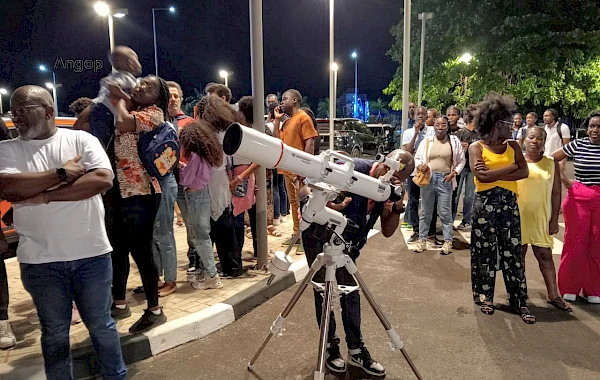Luanda - The European Union (EU) is to invest around €43 million in Angola with a view to strengthening technical education and vocational training, the ambassador of this institution, Rosário Bento País, announced on Wednesday, Jan 22, in Luanda.
The official, who was speaking at the closing of the Revitalization of Technical Education and Professional Training in Angola (RETFOP) project, announced that this support plan, for the education sector, will kick off in 2026.
This value, according to the source, was announced during the meeting between the President of the Republic, João Lourenço, and the EU Commissioner, José Filipe, while the Angolan Head of State was visiting France on the 16th and 17th.
Diplomat Rosário País highlighted that this action is part of the EU's Global Gateway strategy, which supports the Lobito Corridor as an emblematic axis, with great potential to boost the diversification of the economy in Angola and the creation of jobs for young people, mainly women and girls.
She reiterated that the EU will continue to support the Angola Govt in the process of strengthening and teaching technical vocational training.
"In Paris, last week, on the 16th and 17th of January, the European Commissioner announced three new support from the European Union worth €78 million, including the aforementioned one and two others closely linked support to commerce”, she asserted.
Rosário País highlighted that the success of interventions in the area of human capital can be observed when young people finish their studies in schools, centers and universities, thus being equipped with technical skills and life skills.
She also stressed that there is a great need for human capital in Angola, which is why the EU will continue to invest in this sector at both the technical-professional and higher levels.
“These new €43 million will be for the entire economic corridor, that is, all areas beyond transport, in the area of energy, agricultural value chains, digitalization”, she guaranteed.
For five years, more than 400 young people were involved in teacher training programs, of which 316 completed their degrees and are ready to join technical schools as technical education teachers.
There was also an internship program in companies that covered 600 young people, where around 50 companies were involved.
It also covered 230 young people who had financial support to carry out their own business projects.
In addition, there was a pedagogical update training program to train teachers who are already working in technical schools.
The project covered 6 provinces, Luanda, Huíla, Huambo, Moxico, Benguela and Uíge, respectively.
RETFOP aims to contribute to reducing unemployment, mainly among young people, through the provision of more qualified human capital with greater employability, facilitating the transition of graduates from Technical Education and Vocational Training to the job market.
The project is financed by the European Union and has as partners the Instituto Camões from Portugal and France Expertise France.
AMC/SEC/CF/jmc






























